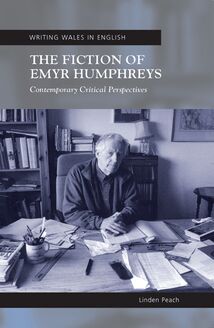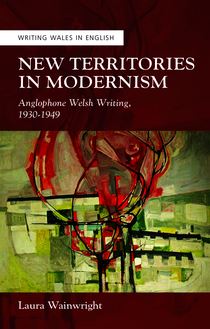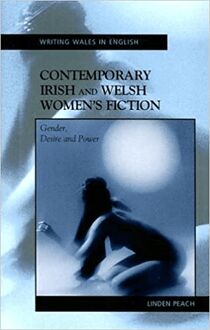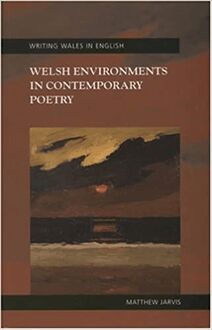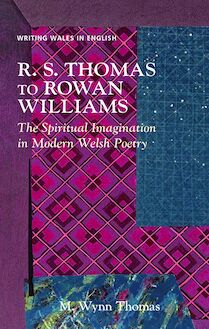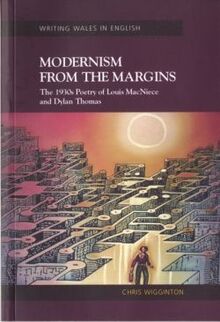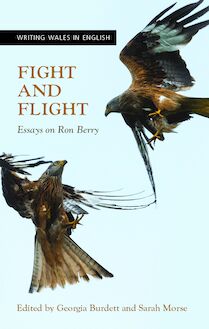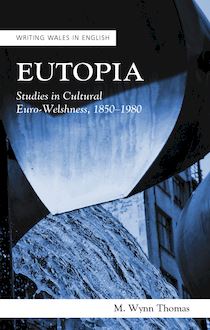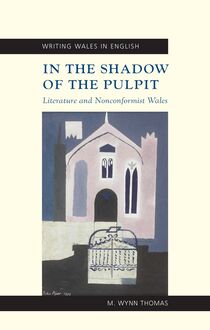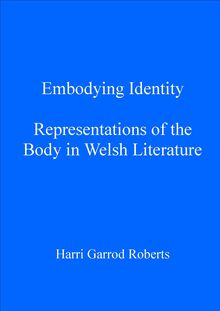-
 Univers
Univers
-
 Ebooks
Ebooks
-
 Livres audio
Livres audio
-
 Presse
Presse
-
 Podcasts
Podcasts
-
 BD
BD
-
 Documents
Documents
-
- Cours
- Révisions
- Ressources pédagogiques
- Sciences de l’éducation
- Manuels scolaires
- Langues
- Travaux de classe
- Annales de BEP
- Etudes supérieures
- Maternelle et primaire
- Fiches de lecture
- Orientation scolaire
- Méthodologie
- Corrigés de devoir
- Annales d’examens et concours
- Annales du bac
- Annales du brevet
- Rapports de stage
La lecture à portée de main
Vous pourrez modifier la taille du texte de cet ouvrage
Découvre YouScribe en t'inscrivant gratuitement
Je m'inscrisDécouvre YouScribe en t'inscrivant gratuitement
Je m'inscrisEn savoir plus
Vous pourrez modifier la taille du texte de cet ouvrage
En savoir plus

Description
The great religious poetry of R. S. Thomas and the poetry of the former Archbishop of Canterbury Rowan Williams is rooted in a remarkable late-twentieth-century tradition of spiritual poetry in Wales that includes figures as different as Saunders Lewis and Vernon Watkins, Waldo Williams and Bobi Jones. Examining this body of work in detail, the present study demonstrates how the different theological outlooks of the poets was reflected in their choice of form, style and vocabulary, highlighting a literary culture that was highly unusual in its rejection of a prevailing secularisation in the UK, Western Europe and the USA.
1. Introduction: An Unfashionable Tradition
2. ‘Traffic-less Emmaeus’: Saunders Lewis
3. ‘The flashed mystery of the moving world’: Vernon Watkins
4. ‘Enfysu’/ Rainbowing: Euros Bowen
5. Gwenallt: the Hieronymous Bosch of Wales
6. Waldo Williams: King in Exile
7. Bobi Jones: Court Poet to the Almighty
8. Three Poets
9. R.S.Thomas and the Tradition
10. Epilogue: the Case of Rowan Williams
Sujets
Informations
| Publié par | University of Wales Press |
| Date de parution | 15 novembre 2022 |
| Nombre de lectures | 0 |
| EAN13 | 9781786839480 |
| Langue | English |
| Poids de l'ouvrage | 1 Mo |
Informations légales : prix de location à la page 0,1500€. Cette information est donnée uniquement à titre indicatif conformément à la législation en vigueur.
Extrait
R. S. T HOMAS TO R OWAN W ILLIAMS
WRITING WALES IN ENGLISH
CREW series of Critical and Scholarly Studies
General Editors: Kirsti Bohata and Daniel G. Williams ( CREW , Swansea University)
This CREW series is dedicated to the memory of Emyr Humphreys, a major figure in the literary culture of modern Wales, a founding patron of the Centre for Research into the English Literature and Language of Wales . Grateful thanks are due to the late Richard Dynevor for making this series possible.
Other titles in the series
Stephen Knight, A Hundred Years of Fiction (978-0-7083-1846-1)
Barbara Prys-Williams, Twentieth-Century Autobiography (978-0-7083-1891-1)
Kirsti Bohata, Postcolonialism Revisited (978-0-7083-1892-8)
Chris Wigginton, Modernism from the Margins (978-0-7083-1927-7)
Linden Peach, Contemporary Irish and Welsh Women s Fiction (978-0-7083-1998-7)
Sarah Prescott, Eighteenth-Century Writing from Wales: Bards and Britons (978-0-7083-2053-2)
Hywel Dix, After Raymond Williams: Cultural Materialism and the Break-Up of Britain (978-0-7083-2153-9)
Matthew Jarvis, Welsh Environments in Contemporary Welsh Poetry (978-0-7083-2152-2)
Harri Garrod Roberts, Embodying Identity: Representations of the Body in Welsh Literature (978-0-7083-2169-0)
Diane Green, Emyr Humphreys: A Postcolonial Novelist (978-0-7083-2217-8)
M. Wynn Thomas, In the Shadow of the Pulpit: Literature and Nonconformist Wales (978-0-7083-2225-3)
Linden Peach, The Fiction of Emyr Humphreys: Contemporary Critical Perspectives (978-0-7083-2216-1)
Daniel Westover, R. S. Thomas: A Stylistic Biography (978-0-7083-2413-4)
Jasmine Donahaye, Whose People? Wales, Israel, Palestine (978-0-7083-2483-7)
Judy Kendall, Edward Thomas: The Origins of His Poetry (978-0-7083-2403-5)
Damian Walford Davies, Cartographies of Culture: New Geographies of Welsh Writing in English (978-0-7083-2476-9)
Daniel G. Williams, Black Skin, Blue Books: African Americans and Wales 1845-1945 (978-0-7083-1987-1)
Andrew Webb, Edward Thomas and World Literary Studies: Wales, Anglocentrism and English Literature (978-0-7083-2622-0)
Alyce von Rothkirch, J. O. Francis, realist drama and ethics: Culture, place and nation (978-1-7831-6070-9)
Rhian Barfoot, Liberating Dylan Thomas: Rescuing a Poet from Psycho-Sexual Servitude (978-1-7831-6184-3)
Daniel G. Williams, Wales Unchained: Literature, Politics and Identity in the American Century (978-1-7831-6212-3)
M. Wynn Thomas, The Nations of Wales 1890-1914 (978-1-78316-837-8)
Richard McLauchlan, Saturday s Silence: R. S. Thomas and Paschal Reading (978-1-7831-6920-7)
Bethan M. Jenkins, Between Wales and England: Anglophone Welsh Writing of the Eighteenth Century (978-1-7868-3029-6)
M. Wynn Thomas, All that is Wales: The Collected Essays of M. Wynn Thomas (978-1-7868-3088-3)
Laura Wainwright, New Territories in Modernism: Anglophone Welsh Writing , 1930-1949 (978-1-7868-3217-7)
Siriol McAvoy, Locating Lynette Roberts: Always Observant and Slightly Obscure (978-1-7868-3382-2)
Linden Peach, Pacifism, Peace and Modern Welsh Writing (978-1-7868-3402-7)
Kieron Smith, John Ormond s Organic Mosaic (978-1-7868-3488-1)
Georgia Burdett and Sarah Morse (eds), Fight and Flight: Essays on Ron Berry (978-1-7868-3528-4)
M. Wynn Thomas, Eutopia: Studies in Cultural Euro-Welshness, 1850-1980 (978-1-78683-614-4)
Linden Peach, Animals, Animality and Controversy in Modern Welsh Literature and Culture (978-1-78683-937-4)
Hywel Dix, Compatriots or Competitors? Welsh, Scottish, English and Northern Irish Writing and Brexit in Comparative Contexts (978-1-78683-934-3)
M. Wynn Thomas, 2022
All rights reserved. No part of this book may be reproduced in any material form (including photocopying or storing it in any medium by electronic means and whether or not transiently or incidentally to some other use of this publication) without the written permission of the copyright owner. Applications for the copyright owner s written permission to reproduce any part of this publication should be addressed to the University of Wales Press, University Registry, King Edward VII Avenue, Cardiff CF10 3NS.
www.uwp.co.uk
British Library CIP Data
A catalogue record for this book is available from the British Library.
ISBN: 978-1-78683-946-6
e-ISBN: 978-1-78683-948-0
The right of M. Wynn Thomas to be identified as author of this work has been asserted in accordance with sections 77 and 79 of the Copyright, Designs and Patents Act 1988.
The publisher has no responsibility for the persistence or accuracy of URLs for any external or third-party internet websites referred to in this book, and does not guarantee that any content on such websites is, or will remain, accurate or appropriate.
C ONTENTS
Series Editors Preface
Acknowledgements
1 Introduction: An Unfashionable Tradition
2 Traffic-less Emmaeus : Saunders Lewis
3 The flashed mystery of the moving world : Vernon Watkins
4 Enfysu /Rainbowing: The Anglican Sacramentalism of Euros Bowen
5 Gwenallt: The Hieronymus Bosch of Wales
6 Waldo Williams: King in Exile
7 Bobi Jones: Court Poet to the Almighty
8 Three Poets
9 R. S. Thomas and the Tradition
10 Epilogue: The Case of Rowan Williams
Notes
S ERIES E DITORS P REFACE
The aim of this series, since its founding in 2004 by Professor M. Wynn Thomas, is to publish scholarly and critical work by established specialists and younger scholars that reflects the richness and variety of the English-language literature of modern Wales. The studies published so far have amply demonstrated that concepts, models and discourses current in the best contemporary studies can illuminate aspects of Welsh culture, and have also foregrounded the potential of the Welsh example to draw attention to themes that are often neglected or marginalised in anglophone cultural studies. The series defines and explores that which distinguishes Wales s anglophone literature, challenges critics to develop methods and approaches adequate to the task of interpreting Welsh culture, and invites its readers to locate the process of writing Wales in English within comparative and transnational contexts.
Professor Kirsti Bohata and Professor Daniel G. Williams
Founding Editor: Professor M. Wynn Thomas (2004-15)
CREW ( Centre for Research into the English Literature and Language of Wales ) Swansea University
I m teulu, mawr a m n
To multiply the harbours does not reduce the sea
- Emily Dickinson
God made me - Master - I didn t be - myself. I don t know how it was done.
- Emily Dickinson
Sacrament sicr ym modd ei sain
There is certain sacrament by means of its sound
- Euros Bowen
Poetry is like the line Christ drew in the sand, it creates a pause in the action, a freeze-frame moment of concentration, a focus where our power to concentrate is concentrated back upon ourselves
- Seamus Heaney
A CKNOWLEDGEMENTS
Extracts from the poetry of Waldo Williams are reproduced by permission of Eluned Richards.
Extracts from R. S. Thomas, Collected Later Poems 1988-2000 (Bloodaxe Books, 2004), are reproduced by permission of Bloodaxe Books.
Extracts from the poetry by Rowan Williams are reprinted by kind permission of Carcanet Press, Manchester
1
I NTRODUCTION : A N U NFASHIONABLE T RADITION
All of the major poets of twentieth-century Wales, Rowan Williams boldly asserted in 1993, whether writing in Welsh or in English, have been deeply preoccupied with Christian themes. 1 I would broadly agree, but with the reservation that the claim does not hold true for the poets of the first half of that century, several of whom - such as T. Gwynn Jones, R. Williams Parry and T. H. Parry-Williams - were either agnostic or atheist. Gwynn Jones, the greatest master of Welsh strict-metre poetry since the golden period of the late Middle Ages, drew on the unique epigrammatic power of cynghanedd for a pungent summary of his bleak vision:
Ni yr dyn namyn mai nos
Ddu oer sydd i w aros
Ym mhen ei lwybr, am hynny
At yr hyn a yr y try.
Man knows not other than that cold black night awaits him at journey s end, and therefore turns to what he knows. 2
Rowan Williams s comment does, however, largely (yet by no means wholly) apply to the poets of the second half of the last century. Throughout that period one singular, and in some ways peculiar, feature of the country s major poetry was not only its strong religious character but the stubbornly orthodox Christian convictions that continued to underpin it. It is indeed an unusual characteristic, because it runs determinedly counter to what might be termed the prevailingly post-religious character of so much of the period s most important poetry elsewhere, particularly in Western Europe and in Anglophone cultures.
The tone for the poetic culture of twentieth-century America was set early by Wallace Stevens whose substantial output consisted of poems exploring the inexhaustible creative ingenuity of the human imagination as it operated, in a post-religious environment, to reconcile human beings to living in a universe bereft of the sustaining consolations of religious belief. His great poem Sunday Morning ends with a magnificent diapason in which celebration and elegy of humankind s godless existence, lived out on an old chaos of the sun , fuse eloquently into one:
Deer walk upon our mountains, and the quail
Whistle about us their spontaneous cries;
Sweet berries ripen in the wilderness;
And, in the isolation of the sky,
At evening, casual flocks of pigeons make
Ambiguous undulations as they sink,
Downward to darkness, on extended wings. 3
Folded into that magical phrase Ambiguous undulations is Stevens s acceptance that the enigma of dying is insoluble.
Other equally towering figures followed his lead. Robert Frost adopted a sly persona of laconic scepticism, and Pound a typically chaotic and omnivorous humanism; William Carlos Williams embraced a materialism and a purely sensuous immanentism that at times seemed al
-
 Univers
Univers
-
 Ebooks
Ebooks
-
 Livres audio
Livres audio
-
 Presse
Presse
-
 Podcasts
Podcasts
-
 BD
BD
-
 Documents
Documents
-
Jeunesse
-
Littérature
-
Ressources professionnelles
-
Santé et bien-être
-
Savoirs
-
Education
-
Loisirs et hobbies
-
Art, musique et cinéma
-
Actualité et débat de société
-
Jeunesse
-
Littérature
-
Ressources professionnelles
-
Santé et bien-être
-
Savoirs
-
Education
-
Loisirs et hobbies
-
Art, musique et cinéma
-
Actualité et débat de société
-
Actualités
-
Lifestyle
-
Presse jeunesse
-
Presse professionnelle
-
Pratique
-
Presse sportive
-
Presse internationale
-
Culture & Médias
-
Action et Aventures
-
Science-fiction et Fantasy
-
Société
-
Jeunesse
-
Littérature
-
Ressources professionnelles
-
Santé et bien-être
-
Savoirs
-
Education
-
Loisirs et hobbies
-
Art, musique et cinéma
-
Actualité et débat de société
- Cours
- Révisions
- Ressources pédagogiques
- Sciences de l’éducation
- Manuels scolaires
- Langues
- Travaux de classe
- Annales de BEP
- Etudes supérieures
- Maternelle et primaire
- Fiches de lecture
- Orientation scolaire
- Méthodologie
- Corrigés de devoir
- Annales d’examens et concours
- Annales du bac
- Annales du brevet
- Rapports de stage
